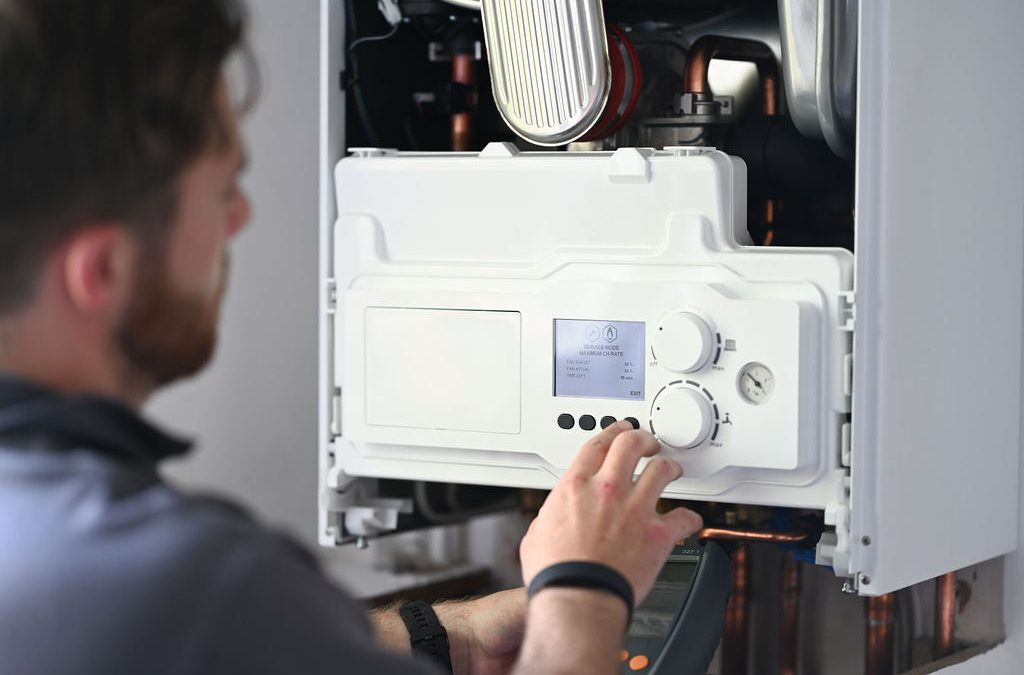Natural gas has been available to consumers in Northern Ireland for over 25 years, and the gas network continues to expand.
Approximately 321,674 customers have already made the switch, but many homeowners have yet to do so. In this article, we explore 10 reasons why now is the time for you to made the switch from oil for natural gas.
1. Never Run Out
Running out of oil is frustrating and inconvenient. At best, a frantic search for a supplier can get a top up quickly, at worst, sludge from the bottom of your tank has got into your system, and it’s an expensive repair.
If you make the change to natural gas you can make running out of fuel a thing of the past. Natural gas provides you with a constant and reliable supply of energy, which means you never have to worry about running out of fuel or ordering it again.
2. Kinder To The Environment
Switching from oil to natural gas can help you make a real environmental impact by significantly reducing your carbon footprint. Natural gas is much kinder to the environment than oil – and by switching your home heating from oil to natural gas you can immediately reduce your carbon emissions by as much as 48%. On average, converting from oil to natural gas will reduce the CO2 emissions of a typical household by around 4 tonnes per year.
Connecting to the gas network also means connecting to a fuel network that will likely get even cleaner over the coming years. All of the gas networks in NI are actively working on using the existing natural gas network to distribute lower-emission fuel.
Most major gas boiler manufacturers (Worcester Bosch, Ideal, Baxi) currently offer ranges that are equipped to run on a 20%/80% hydrogen/natural gas blend – so the new natural gas boiler you have fitted now will last you through the next stage of the journey to net zero.
3. Affordable To Convert To Natural Gas
The cost of converting from oil to natural gas starts from just £3,500. By comparison, if you were to replace your existing 15 year-old oil boiler with a new oil boiler – it could cost you a similar amount, ensuring your oil system was up to current standards.
With natural gas, there are a number of offers available to help fund the cost of conversion. Your local gas distribution Network (Phoenix Natural Gas, Firmus Energy or SGN) will have full details of the current offers available in your area. Current offers include the Phoenix Energy Carbon Reduction Grant.
In addition there are a number of government and public funded grant schemes available to help those on lower incomes to convert from oil to natural gas. These include the Affordable Warmth Scheme (AWS) which offers a grant to cover the full cost of conversion, and the Northern Ireland Sustainable Energy Programme (NISEP) which offers both fully-funded and part-funded grants.
For details on the NISEP Scheme, please visit https://refreshni.com/nisep-scheme-details/. For details on the Affordable Warmth Scheme (AWS) please visit: https://www.nihe.gov.uk/Housing-Help/Affordable-Warmth-Boiler-Replacement.
4. Cheaper Mortgage Rates
Moving from oil to natural gas improves your home’s energy efficiency, which will often result in an improvement in your home’s Energy Performance Certificate (EPC) rating. This is particularly true when conversion to natural gas heating is combined with improved insulation measures.
Many mortgage lenders are now offering preferential rates to homeowners whose properties have the highest EPC ratings. To qualify for a ‘Green Mortgage’, customers must take out their mortgage on a home which has a high energy-efficiency rating of A-C.
5. Save Space In Your Home & Garden
Fitting a natural gas boiler means you can remove your bulky water storage cylinder and costly immersion heater, saving you both money and space in your home.
Natural gas heating also means your home will be connected directly to the gas mains, so you no longer require a bulky oil tank in your garden, so you can turn this space into something more useful, such as a barbecue or patio area for summer dining.
6. Instant Heat
Natural gas heating makes your home warm and cosy in an instant. The highly efficient gas boiler is much quicker than an old oil system. Not only is this more convenient, but it helps save energy and therefore reduces your energy bills.
7. Constant Hot Water
No more costly immersion heaters or fights for the shower. Natural gas gives you access to instantaneous hot water whenever you need it.
8. Increased Efficiency
Converting your old oil boiler to natural gas will make your home much more energy efficient. A 15-year-old boiler is typically just 60% efficient compared to a new ‘A’ rated natural gas boiler which works at over 90% efficiency. Not only is this kinder to the environment but it will save you money on your energy bills.
9. Flexible Payments On Your Fuel Bills
With gas you no longer need to worry about lump sum fuel payments. Choose monthly or quarterly payment options, or opt for a flexible pay-as-you-go meter to top up as and when you need.
10. Adaptable
Natural gas is not just for central heating. It can be used for cooking and many other home appliances including tumble drying, focal point fires, instantaneous water heaters and barbecues.
If you’re ready to make the switch from oil to natural gas, contact us today! We are your one-stop-shop for a greener home, specialising in energy efficient home heating systems.
All of our oil to gas conversions are carried out by a knowledgeable, experienced and friendly team. Not only can we convert your home from oil to gas in just one day but we offer professional service, great value prices and high levels of customer care and support.
Arrange your free home survey today and receive a free, personalised conversion quote. Alternatively visit our NISEP page for full details on gas conversion grants.


Recent Comments